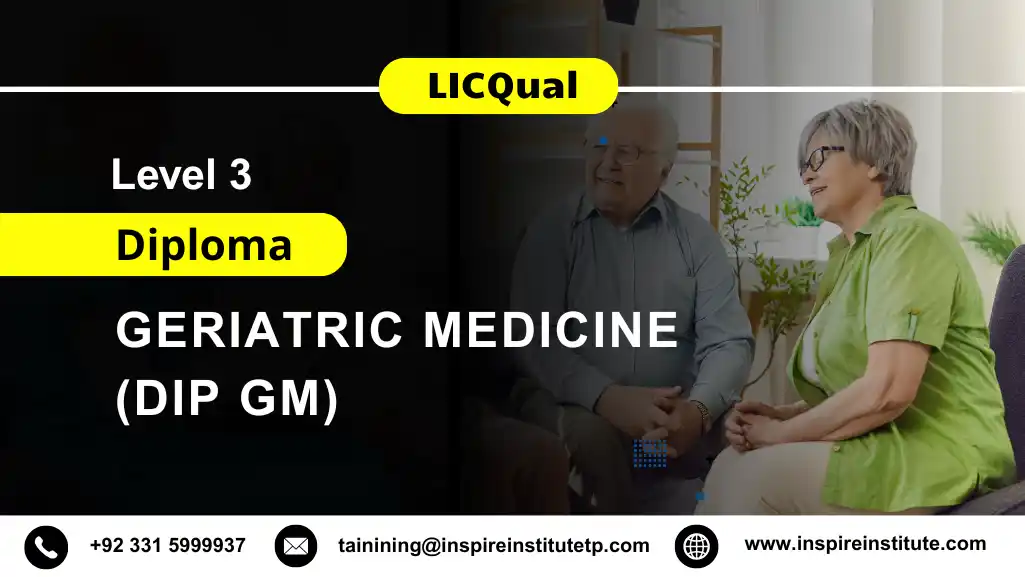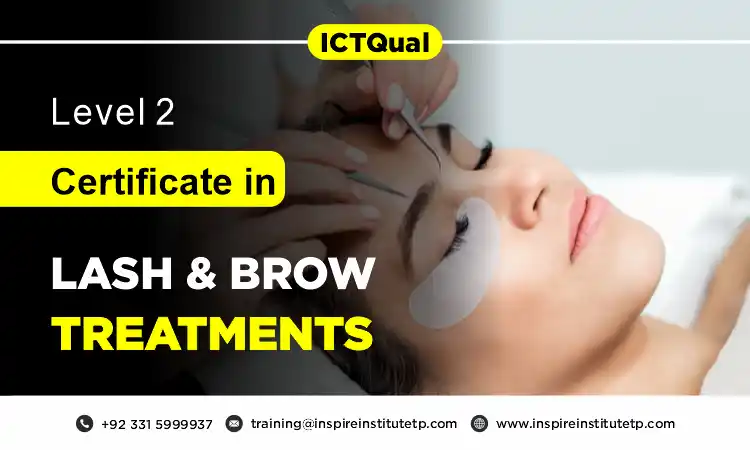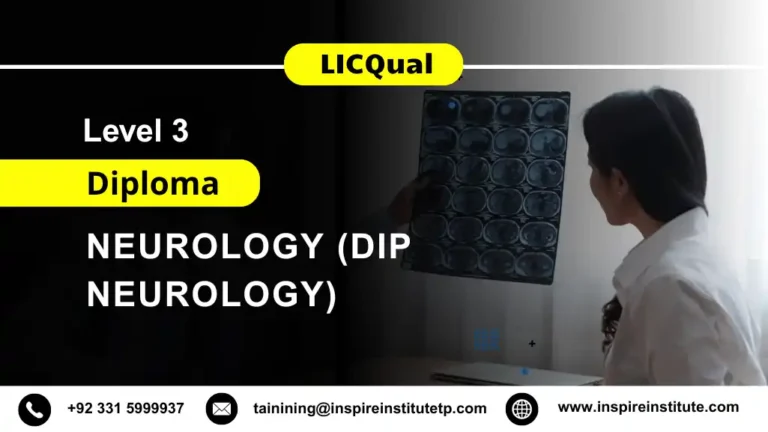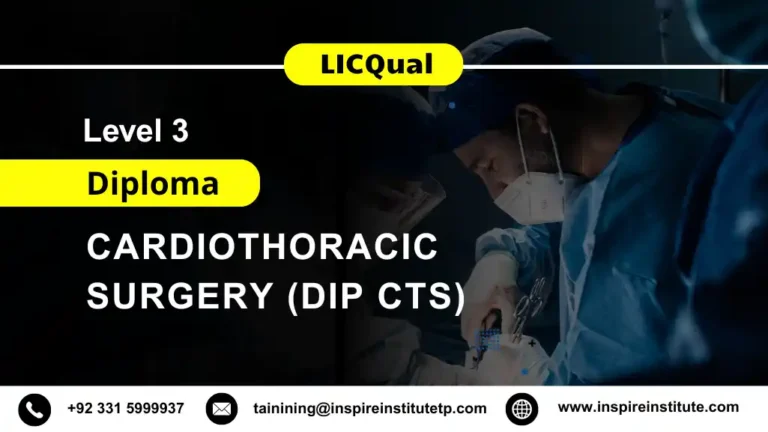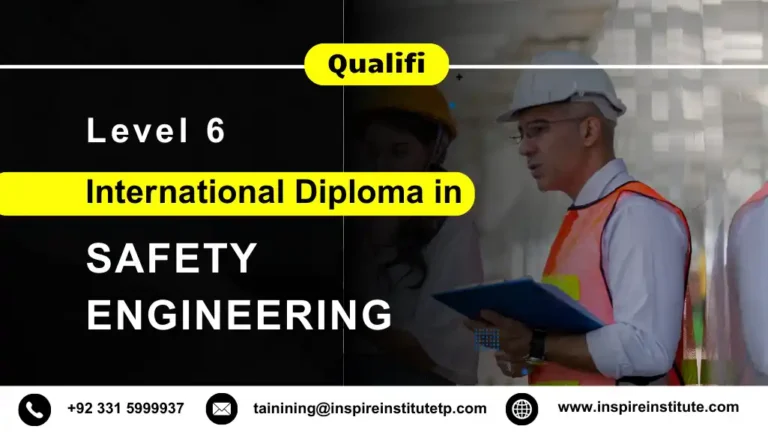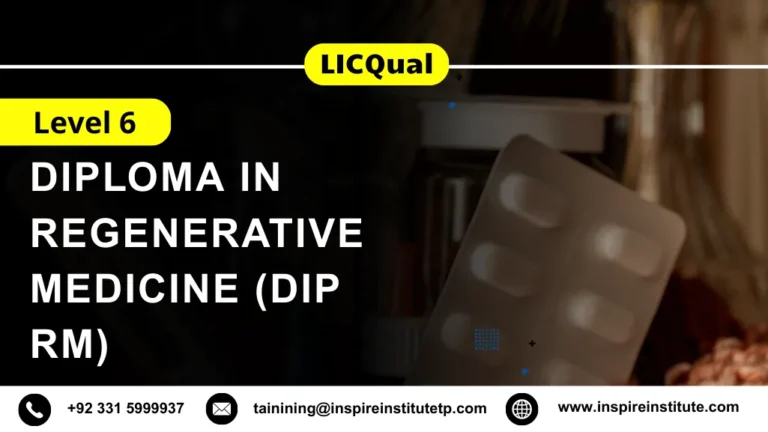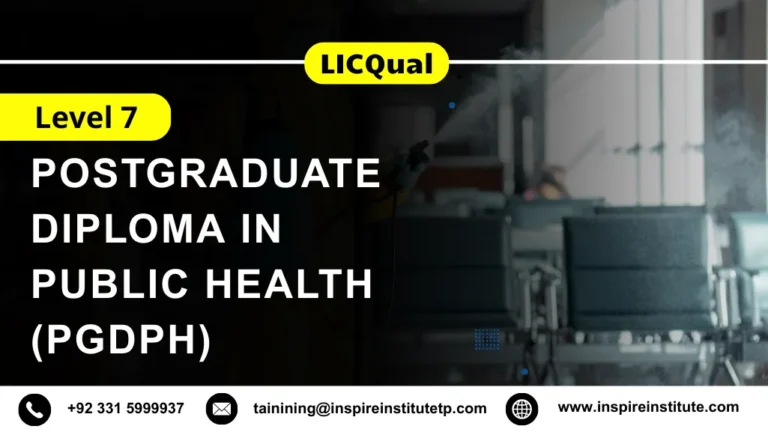LICQual Level 3 Diploma in Geriatric Medicine (Dip GM)
The LICQual Level 3 Diploma in Geriatric Medicine (Dip GM) is a UK-accredited programme designed to prepare learners for the growing demand in elderly healthcare and medical support. With an ageing global population, the need for skilled professionals trained in geriatric medicine and elderly care has never been more critical. This diploma provides a structured pathway for healthcare professionals, caregivers, and aspiring practitioners to build expertise in managing age-related conditions and promoting healthy ageing.
This Geriatric Medicine Course equips learners with a strong theoretical foundation in gerontology, anatomy, and physiology of ageing. It covers essential areas such as dementia care, chronic illness management, palliative care, and rehabilitation practices. By combining academic knowledge with applied learning, the programme ensures that graduates can contribute effectively to improving the health and quality of life of elderly patients.
One of the key strengths of this Elderly Care Diploma lies in its focus on practical application. Learners gain skills to assess geriatric patients, manage long-term medical conditions, and provide compassionate care tailored to individual needs. From handling emergencies to supporting mobility and nutrition, students are trained in a wide range of critical skills in elderly medicine relevant to real-world healthcare settings.
The LICQual Diploma in Geriatric Medicine also emphasizes ethics, empathy, and patient-centered approaches. Students learn how to engage with older adults and their families, ensuring dignity, respect, and emotional well-being in medical care. This ethical framework strengthens the learner’s ability to provide holistic support, especially in sensitive situations such as end-of-life care.
A major advantage of this programme is its flexible, assignment-based learning structure, which allows students to balance study with personal and professional commitments. This makes it suitable not only for medical students and healthcare assistants but also for community health workers, caregivers, and individuals seeking a career change into elderly healthcare.
By completing the LICQual Level 3 Diploma in Geriatric Medicine (Dip GM), learners earn a globally recognized qualification that enhances employability in hospitals, clinics, care homes, and community health centers. Graduates are well-prepared to support the health and well-being of older adults while advancing their careers in the rewarding field of geriatric healthcare.
Why Choose this Qualification
The LICQual Level 3 Diploma in Geriatric Medicine (Dip GM) is a specialized qualification designed to develop essential knowledge and skills for those aspiring to work in elderly healthcare. Geriatric medicine is a vital field of study that focuses on the medical care, well-being, and quality of life of older adults. Choosing this diploma not only strengthens your academic and professional foundation but also prepares you for a meaningful career where you can make a lasting difference in the lives of elderly patients.
Key Reasons to Choose this Qualification
Comprehensive Understanding of Geriatric Medicine
Gain an in-depth foundation in geriatric anatomy, physiology, and ageing processes.
Learn about the diagnosis and management of age-related diseases and chronic conditions.
Study preventive healthcare practices such as nutrition, rehabilitation, and fall prevention.
Understand the principles of long-term care, dementia care, and palliative support for the elderly.
Practical Skills for Real-World Elderly Care
Acquire hands-on knowledge to assess and monitor elderly patients effectively.
Learn essential techniques for handling geriatric emergencies and first aid.
Apply evidence-based practices in managing multiple chronic illnesses and complex care needs.
Develop problem-solving abilities in clinical scenarios involving elderly healthcare.
Career-Ready Qualification
Enhance employability with recognized geriatric healthcare skills.
Prepare for entry-level roles in hospitals, nursing homes, care facilities, and community healthcare.
Build a strong foundation for progressing into advanced medical, nursing, or healthcare studies.
Demonstrate professional competence through an accredited international qualification.
Strong Focus on Patient-Centered Elderly Care
Develop communication skills for interacting with older adults and their families.
Learn to apply empathy and ethical practices in geriatric healthcare.
Understand cultural and social considerations in ageing and elderly well-being.
Gain confidence in supporting patients with dignity and respect in all healthcare settings.
Internationally Recognized Qualification
Earn a qualification awarded by LICQual, known for its high academic standards.
Open opportunities for global healthcare careers in geriatric and elderly care sectors.
Gain credibility and recognition among employers, peers, and professional bodies.
Use this diploma as a stepping stone for advanced healthcare certifications worldwide.
Flexible and Structured Learning
Benefit from a structured curriculum designed for progressive learning.
Study at your own pace with assignment-based assessments that test understanding.
Access study resources and materials tailored to geriatric healthcare.
Balance academic growth with professional or personal responsibilities.
Ethical and Professional Development
Gain insights into professional codes of conduct in elderly care and medicine.
Understand patient confidentiality, rights, and safeguarding responsibilities for older adults.
Learn to make responsible decisions in complex healthcare situations.
Develop leadership and teamwork qualities for future growth in healthcare roles.
Contribution to Society and Elderly Well-Being
Play a direct role in improving healthcare outcomes for ageing populations.
Support global initiatives for better elderly care and healthy ageing.
Build a career with both personal fulfillment and professional impact.
Contribute to enhancing dignity, independence, and quality of life for elderly patients.
The LICQual Level 3 Diploma in Geriatric Medicine (Dip GM) is more than just an academic qualification; it is a pathway to a rewarding career in elderly healthcare. With its combination of theoretical knowledge, practical skills, ethical training, and international recognition, this diploma equips learners to make a significant impact in the field of geriatric medicine. By choosing this qualification, you are not only investing in your professional growth but also in the well-being and dignity of older adults worldwide..
Course Overview
LICQual UK Awarding Body
Average Completion Time:
4-12 Months
Study Units: 6 Units
Evidence & Assignment Based
Mandatory Units
Who Should Take This Course
The LICQual Level 3 Diploma in Geriatric Medicine (Dip GM) is a specialized qualification designed for individuals who are passionate about elderly healthcare and aspire to build a strong foundation in geriatric medicine. Elderly care is one of the most important fields in healthcare, requiring both advanced medical knowledge and compassionate practice. This diploma equips learners with the skills and expertise necessary to work in healthcare professions or advance to higher-level studies, making it a suitable choice for a wide range of learners.
This Course is Suitable For
Aspiring Elderly Healthcare Professionals
Build a strong understanding of ageing processes, geriatric anatomy, and physiology.
Learn to identify and manage age-related illnesses, chronic diseases, and mobility challenges.
Develop skills to assess, diagnose, and monitor elderly patients’ health conditions.
Gain confidence in applying geriatric medical knowledge in real-world healthcare settings.
Nursing and Healthcare Assistants
Enhance knowledge in patient-centered care for older adults.
Improve practical skills in monitoring vital signs, administering medication, and providing daily support.
Strengthen communication techniques with elderly patients and their families.
Acquire internationally recognized skills to progress within healthcare careers.
Medical Students and Early Career Practitioners
Use this diploma as a foundation for further geriatric or general medical studies.
Gain early exposure to elderly healthcare practices, ethics, and professional standards.
Build the ability to apply evidence-based medicine in geriatric care.
Develop strong decision-making and problem-solving skills in clinical situations.
Allied Health Professionals
Strengthen geriatric knowledge to support multidisciplinary healthcare teams.
Learn preventive approaches such as nutrition, fall prevention, and rehabilitation strategies.
Improve patient care delivery through applied geriatric medicine principles.
Gain specialized skills that add value to existing healthcare qualifications and roles.
Community Health Workers and Caregivers
Acquire essential skills to support elderly health within local and community settings.
Learn to recognize early signs of illness and age-related decline.
Develop preventive healthcare practices to promote healthy ageing and wellness.
Enhance ability to provide health education to families and caregivers.
Individuals Seeking a Career Change into Healthcare
Begin a professional journey in healthcare with a recognized qualification.
Gain specialized knowledge in geriatrics without needing prior medical experience.
Acquire transferable skills applicable to hospitals, nursing homes, and NGOs.
Build confidence to progress into advanced healthcare education and practice.
International Learners Aiming for Global Healthcare Careers
Earn a globally recognized diploma that enhances employability worldwide.
Gain knowledge and skills that meet international elderly healthcare standards.
Strengthen professional profiles for roles in hospitals, clinics, and care facilities abroad.
Open pathways for higher education and advanced geriatric studies globally.
Volunteers and NGO Workers in Elderly Care Programs
Develop expertise to contribute effectively to elderly health and welfare projects.
Learn the essentials of geriatric medicine relevant to community and outreach programs.
Improve ability to deliver support services in elderly and palliative care initiatives.
Gain confidence in making a positive impact on ageing populations and vulnerable groups.
The LICQual Level 3 Diploma in Geriatric Medicine (Dip GM) is ideal for anyone committed to improving elderly health and well-being. Whether you are an aspiring healthcare professional, a current practitioner, or someone looking to transition into the medical field, this qualification provides the foundation, skills, and recognition needed to excel in geriatric medicine. By choosing this course, learners position themselves for both career advancement and the opportunity to make a meaningful contribution to the future of elderly healthcare.
Course Benefits
The LICQual Level 3 Diploma in Geriatric Medicine (Dip GM) provides significant benefits for individuals seeking to build expertise in elderly healthcare, ageing processes, and geriatric medical practices. By combining essential theoretical knowledge with practical applications, this diploma equips learners to deliver high-quality care for older adults, manage chronic and age-related illnesses, and support preventive health strategies. Designed as a flexible, assignment-based programme, it ensures professional development while maintaining academic excellence and relevance in today’s healthcare sector.
Key Benefits of the Course:
- Specialist Knowledge: Gain a solid foundation in geriatric anatomy, physiology, and the ageing process. Learners explore elderly nutrition, medication management, rehabilitation techniques, and preventive healthcare approaches for chronic diseases. The course also covers ethical and patient-centered medical practices, preparing learners to make informed and evidence-based decisions in geriatric care.
- Practical Application: Develop practical skills in assessing elderly patients’ health, recognizing signs of ageing-related decline, and supporting early diagnosis of chronic and acute conditions. Learners gain competence in handling emergencies, administering essential care, and applying best practices in hospitals, care homes, and community health settings. The programme ensures graduates can apply theory directly to real-world geriatric healthcare.
- Recognised Qualification: Earn a UK-accredited diploma that validates advanced knowledge in geriatric medicine and strengthens professional credibility. This recognition ensures alignment with international healthcare and elderly medical care standards, making the qualification valuable for careers in hospitals, elderly care units, NGOs, and residential healthcare facilities worldwide.
- Flexible Learning Pathway: Benefit from an assignment-based study model that allows learners to continue professional or personal responsibilities while advancing academically. This flexible approach makes the LICQual Level 3 Diploma in Geriatric Medicine (Dip GM) ideal for healthcare assistants, medical students, and career changers seeking a structured yet accessible programme.
- Evidence-Based Training: Explore the latest guidelines in geriatric care, rehabilitation, and preventive medicine, ensuring learners can adopt patient-centered, safe, and effective approaches. Training emphasizes fall prevention, nutrition, medication safety, and evidence-driven healthcare interventions that support both individual patients and wider community health outcomes.
- Career Development: Expand career opportunities across hospitals, geriatric clinics, nursing homes, community health centers, and international elderly care organizations. The diploma opens pathways into roles in elderly support, healthcare management, and allied medical services, as well as further advanced studies in nursing, palliative care, and geriatric medicine.
- Enhanced Elderly Healthcare Delivery: Contribute to better elderly health outcomes through early detection, accurate care, and preventive healthcare strategies. Learners acquire the skills to support families, promote healthy ageing, and manage geriatric health challenges, ultimately improving community health and enhancing the quality of life for older adults.
- Professional Growth: Strengthen clinical knowledge, decision-making, and communication skills needed to interact effectively with elderly patients and their families. The course also builds professional values such as empathy, ethics, and interdisciplinary collaboration, preparing learners to play a crucial role in geriatric healthcare delivery.
The LICQual Level 3 Diploma in Geriatric Medicine (Dip GM) equips learners with vital knowledge, practical competence, and a UK-recognised qualification. It empowers healthcare professionals and aspiring practitioners to improve elderly health outcomes, contribute to public health initiatives, and advance their careers in the rewarding and essential field of geriatric medicine.d advance their careers in the rewarding and impactful field of pediatric medicine.
Eligibility Criteria
The LICQual Level 3 Diploma in Geriatric Medicine (Dip GM) is a UK-accredited programme designed for aspiring healthcare professionals, nurses, caregivers, and community health practitioners who wish to develop a strong foundation in elderly healthcare, ageing processes, and geriatric medicine. This assignment-based qualification combines essential theoretical knowledge with practical applications, making it ideal for medical students, healthcare assistants, allied health professionals, and individuals looking to specialize in geriatric care. By meeting the entry requirements, learners ensure they are fully prepared to succeed in the programme and apply their knowledge effectively in hospitals, nursing homes, rehabilitation centers, and community healthcare settings.
Educational Background:
Applicants should hold a recognised healthcare or science-related qualification such as a diploma in healthcare practice, nursing, or an equivalent qualification. Candidates with Level 2 or Level 3 qualifications in healthcare, ageing studies, clinical science, or related fields may also be considered. Equivalent international qualifications will be reviewed on a case-by-case basis to ensure they meet the suitability standards for the programme.
Professional Experience:
While previous experience in geriatric care or general healthcare is beneficial, it is not strictly mandatory. A minimum of one year of healthcare, caregiving, or community health experience is recommended. Applicants with exposure to elderly healthcare, nursing support, or clinical assistance will find the course particularly valuable, though motivated individuals without direct experience are also encouraged to apply.
Age Requirement:
Learners must be at least 18 years of age at the time of enrolment, ensuring they possess the maturity, responsibility, and commitment required for training in geriatric medicine. This requirement ensures that candidates can engage with both the academic and practical aspects of the qualification effectively.
Language Proficiency:
Since the programme is delivered in English, learners should demonstrate strong reading, writing, and communication skills. A minimum IELTS score of 6.0 or an equivalent qualification is recommended for non-native English speakers. This ensures that learners can complete assignments, engage with course resources, and interact professionally in academic and healthcare contexts.
Technical Requirements:
Applicants should have access to a computer or laptop with a stable internet connection. Basic IT skills are necessary to manage online learning platforms, conduct research, and submit assignments digitally. Familiarity with using word processing tools and accessing digital study resources will support a smoother learning experience.
Required Documents:
Submission of a valid ID or passport, proof of educational qualifications, and evidence of any healthcare or related professional experience (if applicable) is required for registration. Applicants presenting international qualifications may be asked to provide additional documentation for verification.
The Qualification Process
LICQual Level 3 Diploma in Geriatric Medicine (Dip GM) follows a structured pathway to ensure learners gain comprehensive knowledge, practical skills, and professional competence in community oral healthcare.
Step 1: Self-Assessment
Learners review the entry requirements to confirm eligibility. Candidates with a background in dentistry, oral health, or public health are encouraged to apply.
Step 2: Registration
Complete the registration process by submitting required documents such as proof of qualifications, a valid ID, and payment of enrollment fees.
Step 3: Induction
An induction session is conducted to:
- Verify learner eligibility and documentation.
- Introduce study materials, learning outcomes, and assessment procedures.
Step 4: Learning and Evidence Submission
Learners complete assignments, case studies, and practical exercises demonstrating competence in public health dentistry, community oral health assessment, preventive strategies, and program planning.
Step 5: Feedback and Revision
Assessors review submitted evidence and provide constructive feedback. Learners can revise and resubmit work to meet all required standards.
Step 6: Competence Validation
Final submissions are evaluated to confirm that learners have met all theoretical and practical learning outcomes.
Step 7: Internal Quality Assurance (IQA)
The IQA team reviews the assessment process to ensure accuracy, fairness, and compliance with international standards.
Step 8: External Verification (EQA)
External verifiers validate the authenticity and quality of learner achievements.
Step 9: Certification
Upon successful verification, learners are awarded LICQual Level 3 Diploma in Geriatric Medicine (Dip GM) , demonstrating advanced proficiency in community oral healthcare and preparing them for professional growth in dental public health, preventive dentistry, and healthcare policy.

